October 4th is
World Animal Day *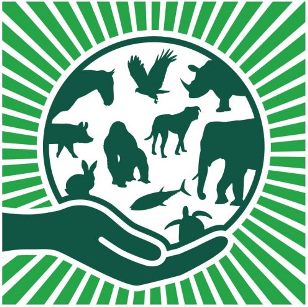
Golf Lover’s Day *
Improve Your Office Day
Ship in a Bottle Day *
National Taco Day
National Vodka Day
Blessing of the Animals Day
(Feast Day of Saint Francis)
It’s also World Space Exploration Week
_____________________________________
MORE! Lucy Tayiah Eads, Buster Keaton and Alice Stewart, click
_____________________________________
WORLD FESTIVALS AND NATIONAL HOLIDAYS
Many countries are having special events for World Space Exploration Week. Check here to see what’s happening in your country: https://www.worldspaceweek.org/events/event-list/
Argentina – San Isidro: Festival Bocas
Abiertas (Open mouths music festival)
Bhutan – Thimphu: Thimphu Dtubchen
(sacred dance for goddess Pelden Lhamo)
Egypt – Hurghada: Heracleion Music Festival
Germany – Berlin: Berlin Coffee Festival
India – Mumbai:
Indian Ocean Festival/Dive Show
Italy – Bologna: St. Petronius Day
Lesotho – Independence Day *
Malaysia – Kuala Lumpur:
Wedding Festival
Mongolia – Ulgii: Golden Eagle Festival
Mozambique –
Peace and Reconciliation Day
Peru – Arequipa: Festival de danzas
Philippines – Bacolod:
Masskara Festival
Spain – Tossa del Mar: Fort Festival
Sweden – Kanelbullens Dag
(Cinnamon Bun Day)
United Kingdom – Cheltenham:
Cheltenham Literature Festival
_____________________________________
On This Day in HISTORY
AD 23 – Lulin agrarian rebellion: during a time of great famine and political corruption, peasant rebels capture and sack the Chinese capital Chang’an. They will kill the Xin dynasty emperor, Wang Mang, two days later

1302 – A peace treaty ends the Byzantine-Venetian War (1296-1302)
1363 – During the Red Turban Rebellion, which will eventually overthrow Mongol rule of China, the Battle of Lake Poyang is finally won by the Ming rebel forces of Zhu Yuanzhang when they defeat the fleet of the insurgent Dahan leader Chen Youliang. Lake Poyang is the largest freshwater lake in China, located in southeastern China. The battle began on August 30, making it one of the longest and largest naval battles in world history. In the 21st century, Lake Poyang has been shrinking, due to climate change, dams and drought

1515 – Lucas Cranach the Younger born, German Renaissance painter

Samson and Delilah by Lucas Cranach the Younger
1535 – The Cloverdale Bible, first complete English-language version, is printed, with translations by William Tyndale and Myles Cloverdale
1562 – Christen Sørensen Longomontanus born, Danish astronomer and author; Tycho Brahe’s assistant at Uraniborg, completed work on the Tychonic lunar theory; later professor, then chair of mathematics at the University of Copenhagen (1607-1647)
1582 – Pope Gregory XIII implements the Gregorian calendar – in Italy, Poland, Portugal and Spain, October 4 is followed directly by October 15
1625 – Jacqueline Pascal born, French nun, poet, composer and teacher; sister of the polymath Blaise Pascal. The youngest child of three, Jacqueline Pascal became the caregiver for her father during his last years. She struck an agreement with him: she would take care of him until his death and would then enter the convent. At his death, however, her sickly brother Blaise insisted that Jacqueline remain home as his caregiver. In a letter to Blaise, Jacqueline refused to be trapped in the domestic role and insisted on the right to follow her own vocation. “It’s no longer reasonable to continue my deference to other’s feelings over my own. It’s their turn to do some violence to their own feelings in return for the violence I did to my own inclinations during four years. It is from you, in particular, that I expect this token of affection.”

1795 – Napoleon Bonaparte uses cannon to suppress armed counter-revolutionaries threatening the French National Convention, this “Whiff of Grapeshot” brings him to national attention, and leads to his promotion to commander of the Army of Italy

Attack by Napoleon’s cannons the next day,
Saint Roch Church, 13 Vendemiaire – October 5, 1795
1814 – Jean-Francois Millet born, French painter, co-founder of the Barbizon school

Peasant Spreading Manure by Jean-François Millet, circa 1854
1824 – Mexico becomes a federal republic, adopting a new constitution
1830 – The Kingdom of Belgium is created by separation from the Netherlands
1835 – Jenny Twitchell Kempton born, American contralto opera soloist whose career spanned almost five decades; supporter of women’s suffrage who gave numerous benefit concerts for the cause between 1890 and 1910

1836 – Juliette Lambert Adam born, French author and feminist; founded the Nouvelle Revue in 1879, also its editor for the first eight years; involved in the Avant-Courrière (Forerunner) association which advocated for the right of women to have control over the product of their labor and to be witnesses

1861 – Frederic Remington born, American artist, famed for his western-themed work
1862 – Edward L. Stratemeyer born, American publisher-author of popular juvenile fiction; developed several series, including The Rover Boys, and pioneered book-packaging – using freelance writers to maintain a long-running series under a pen name
1864 – Eliza Kellas born, American educator; principal (1911-1916) of the Emma Willard School, the first U.S. women’s higher education institution (founded in 1814 as the Troy Female Seminary); co-founder of Russell Sage College, originally a vocational school that was part of the Emma Willard School, but, mainly through the efforts of Kellas, a separate charter was secured in 1917, and the school began stressing science education for women

1876 – The Agricultural and Mechanical College of Texas becomes the first institution of higher education in Texas – later becomes Texas A & M University
1876 – Florence Eliza Allen born, American mathematician and suffrage activist; second woman to receive a Ph.D. in mathematics at the University of Wisconsin-Madison, where she became an instructor and assistant professor; published papers on transcendental curves and the rational plane cubic

1883 – The Orient Express makes its first run from Paris to Giurgiu, Romania, where passengers had to catch a ferry, another train, and a second ferry in order to complete their journey to Constantinople (now Istanbul)

1884 – Damon Runyon born, American writer and newspaper reporter who covered news and sports; best-known for his short stories (a “Damon Runyon character” evokes a distinctive social type from Brooklyn or Midtown NY) which became the basis for the Broadway musical Guys and Dolls

1888 – Lucy Tayiah Eads born, aka Cha-me, first woman tribal chief of the Kaw tribe (1922-1928) and nurse at the Haskell Indian College; mother of nine children
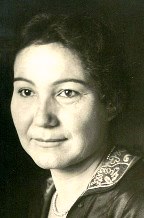
1892 – Robert Lawson born, American author-illustrator of children’s books; winner Caldecott Medal for They Were Strong and Good, and Newbery Award for Rabbit Hill

Pan, and City Ship, by Robert Lawson
1895 – Buster Keaton born, American comic actor, producer-director, screenwriter and stuntman of silent films; high on the list of greatest actor-directors of all time
1895 – The first U.S. Open golf tournament held at the Newport Country Club, RI (see related entry for 1952)
1896 – Dorothy Lawrence born, English reporter and war correspondent; disguised as a man, she posed as a soldier at the front during WWI for ten days before turning herself in and being interrogated as a suspected spy; after the war, her book, Dorothy Lawrence: The Only English Woman Soldier, was heavily censored by the British War Office
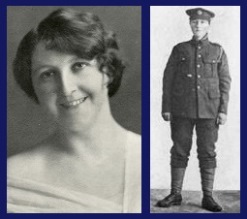
1906 – Sister Mary Celine Fasenmyer born, American mathematician and a sister of the Sisters of Mercy, Catholic women religious congregation, known for her work on recurrence relations in hypergeometric series,.and linear algebra. The hypergeometric polynomials she studied are called Sister Celine’s polynomials
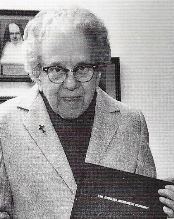
1906 – Alice Stewart born, English epidemiologist who demonstrated the connection between foetal X-rays and childhood leukemia. Her research proved there was a greater danger from exposure to low-level radiation, but this was resisted by officials of the British and U.S. governments. Starting in WW II, she investigated the health effects of exposure to TNT in munitions factories, of carbon tetrachloride, and a prevalence of tuberculosis among shoe industry workers. After a visit to the U.S. in 1974, Stewart consulted on a major investigation of the health of workers in the nuclear industry there

1908 – Eleanor Flexner born, author, historian, pioneer in the field of Women’s Studies; author of Mary Wollstonecraft: A Biography, and co-author of Century of Struggle: The Women’s Rights Movement in the United States

1910 – General Porfirio Díaz claims he won reelection as President, having been either the leader of the government or the power behind it for over thirty years. There were cries of election fraud, Pancho Villa takes up arms in Chihuahua, in support of Francisco Madero’s belief that his re-election should not be legal. Madero, an idealist and advocate for social justice and democracy, had run against Díaz on an anti-reelection platform. Madero urges the Mexican people to rise up against Díaz, igniting the Mexican Revolution (1910-1920)

Francisco Madero
1914 – Brendan Gill born, regular contributor to The New Yorker (1936-1997) who wrote criticism of books, plays and architecture, profiles and Talk of the Town features; he was a champion of architectural preservation and joined Jackie Kennedy’s coalition to preserve and restore New York’s Grand Central Station

1917 – Violeta Parra born, Chilean singer-songwriter, folklorist, ethnomusicologist and visual artist
1925 – Heinrich Zimmermann, publisher of Mensch und Hund (‘Man and Dog’) magazine, organizes the first Animal Day in Berlin on March 24, but in 1929 it moves to October 4, the feast day of Saint Francis of Assisi. In 1931, the International Animal Protection Congress, adopted a resolution designating this day as World Animal Day * and since 2003, Naturewatch Foundation is its main sponsor
1927 – Gutzon Borglum begins sculpting Mount Rushmore on South Dakota’s Black Hills, which was completed after his death under direction of his son, Lincoln Borglum
1928 – Alvin Toffler born, American author and futurist, associate editor of Future Shock magazine, and coined the phrase “information overload.” Noted for his books, won which his wife Heidi Toffler often collaborated, which described the impact of technology on society and the rising power of military hardware, including the bestsellers Future Shock, The Third Wave and Powershift

1929 – The Table Mountain cableway is inaugurated; it will be one of the biggest tourist attractions in Cape Town, South Africa
1931 – Chester Gould’s comic strip “Dick Tracy” makes its debut

1932 – Ann Thwaite born, British biographer; her book, AA Milne: His Life, was the 1990 Whitbread Biography of the Year; she is also the author of children’s books, such as The Camelthorn Papers, and Gilbert and the Birthday Cake

1936 – Anti-Fascists and Fascists clash violently in the “Battle of Cable Street” in London’s East End; When Fascist leader Oswald Mosley announced that he would march with 5000 of his Blackshirts, an exaggerated number, through the working-class, heavily Jewish and Irish immigrant neigborhoods of East London, Labour Unionists and immigrants unite to block the streets shouting “Mosley shall not pass!”

1941 – Ann Rice born, American author; Interview with the Vampire is the first book in her series The Vampire Chronicles

1941 – Norman Rockwell’s ‘Willie Gillis’ debuts on the Saturday Evening Post cover

1941 – Karen Cushman born, American author of historical fiction; her children’s books, The Midwife’s Apprentice won the 1996 Newbery Medal, and Catherine, Called Birdy was 1995 Newbery Honor Book

1942 – Jóhanna Sigurðardóttir born, Icelandic Social Democratic Alliance politician; Prime Minister of Iceland (2009-2013); Minister of Social Affairs and Social Security (2007-2009); during her tenure as PM, the country was in the midst of an economic crisis caused by the default of Iceland’s major privately owned commercial banks, the worst banking collapse in the nation’s history. Iceland’s gross domestic product fell by 10% between 2007 and 2010. But by 2011, a new era with positive GDP emerged, the unemployment rate declined, and the government deficit went from 9.7% in 2009-2010 to .02% in 2014. The failed banks were restructured, divided into old and new state-owned banks, which were recapitalized by the Icelandic government, and the Icelandic Constitution was put under review by a Constitutional Council, which included 25 non-political members of the public elected by the people. In 2010, Iceland became the first Western democratic country to ban strip clubs, paying for nudity in restaurants, and other means of employers profiting from employees’ nudity. Sigurðardóttir said, “The Nordic countries are leading the way on women’s equality, recognizing women as equal citizens rather than commodities for sale.”

1952 – The PGA holds its first annual charity event for National Golf Lover’s Day * (see 1895 entry)
1952 – Zinha Vaz, born as Francisca Maria Monteira e Silva Vaz Turpin, women’s rights activist in Bissau-Guinea, a founding member of the Resistance of Guinea-Bissau-Bafatá Movement and a Plataforma Unida and Guinean Patriotic Union politician; served as her country’s Ambassador to Gambia (2012); member of the National People’s Assembly (1994-1999 and 2000-2003); Mayor of Bissau (1999); founder and president of the Women’s Association of Economic Activity of Guinea-Bissau (1992-2002). After Bissau-Guinea became independent from Portugal in 1974, she was an outspoken critic of the one-party system which was put in place. She was arrested and imprisoned (1977-1980)

1956 – Lesley Glaister born, British novelist, poet and playwright; noted for her novels, Honour Thy Father, which won a 1991 Somerset Maughan Award; Now You See Me; and Little Egypt; and her play, Bird Calls. Fellow of the Royal Society of Literature

Lesley Glaister – Russell Sneddon photo
1957 – The Soviet Union launches Sputnik 1, the first artificial Earth satellite

1957 – Leave It to Beaver premieres on CBS-TV
1965 – Pope Paul VI arrives in New York City, becoming the first Pope ever to visit the Western hemisphere
1966 – Grace Slick makes her first appearance with Jefferson Airplane
1966 – The Kingdom of Lesotho * celebrates its independence from Great Britain; it is a constitutional monarchy, and the only country in the world which is entirely above 3,281 feet (1,000 metres) in elevation. Lesotho is completely surrounded by the Republic of South Africa
1976 – Barbara Walters debuts as television’s first woman co-anchor on primetime evening news (ABC News)
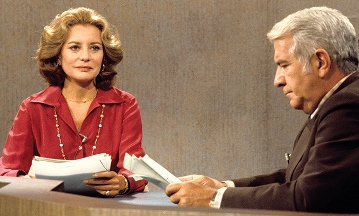
Barbara Walters with Harry Reasoner – ABC Evening News 1976
1980 – Sarah Fisher born, American race car driver; competed in IRL IndyCar Series (1999-2010), as well as several times in the Indy 500, and raced in the NASCAR West Series (2004-2005). Placed second in the 2001 Infiniti Grand Prix of Miami

1985 – Richard Stallman launches the Free Software Foundation, which works on legal and structural issues for the free software movement
1990 – Leonard Bernstein, American music legend, dies at age 72
1990 – German lawmakers hold the first meeting of the reunified country’s parliament in the Reichstag in Berlin
1991 – The Antarctic-Environmental Protocol is concluded in Madrid, and opens for signature, entering into force on January 14, 1998
1993 – Ruth Bader Ginsburg becomes the second woman U.S. Supreme Court Justice

1997 – The soundtrack for the classic film Casablanca is released for the first time
2004 – SpaceShipOne wins the Ansari X Prize for first private craft to fly into space
2006 – Julian Assange launches Wikileaks
2010 – U.S. Supreme Court begins a new era, with three women serving together for the first time, as Elena Kagan takes her place at the end of the bench

2012 – The Ship in a Bottle Association of America starts Ship in a Bottle Day * on the birthday (October 4) of the Association’s co-founder and first president Jack Hinkley, to honor his memory

2016 – The Oklahoma Supreme Court ruled that a state bill imposing new requirements on abortion providers is unconstitutional. The legislation, Senate Bill 642, passed in 2015 but had not taken effect due to the court challenge. It would have made it a felony to help a minor get an abortion without parental consent. It also would have authorized the state Bureau of Investigation to create new protocols for statutory rape cases, and would have required abortion providers to preserve fetal tissue from abortions on girls under age 14. The court said the bill violated the state constitution and placed “undue burdens on access to abortion under the guise of protecting the health of women.”
_____________________________________
